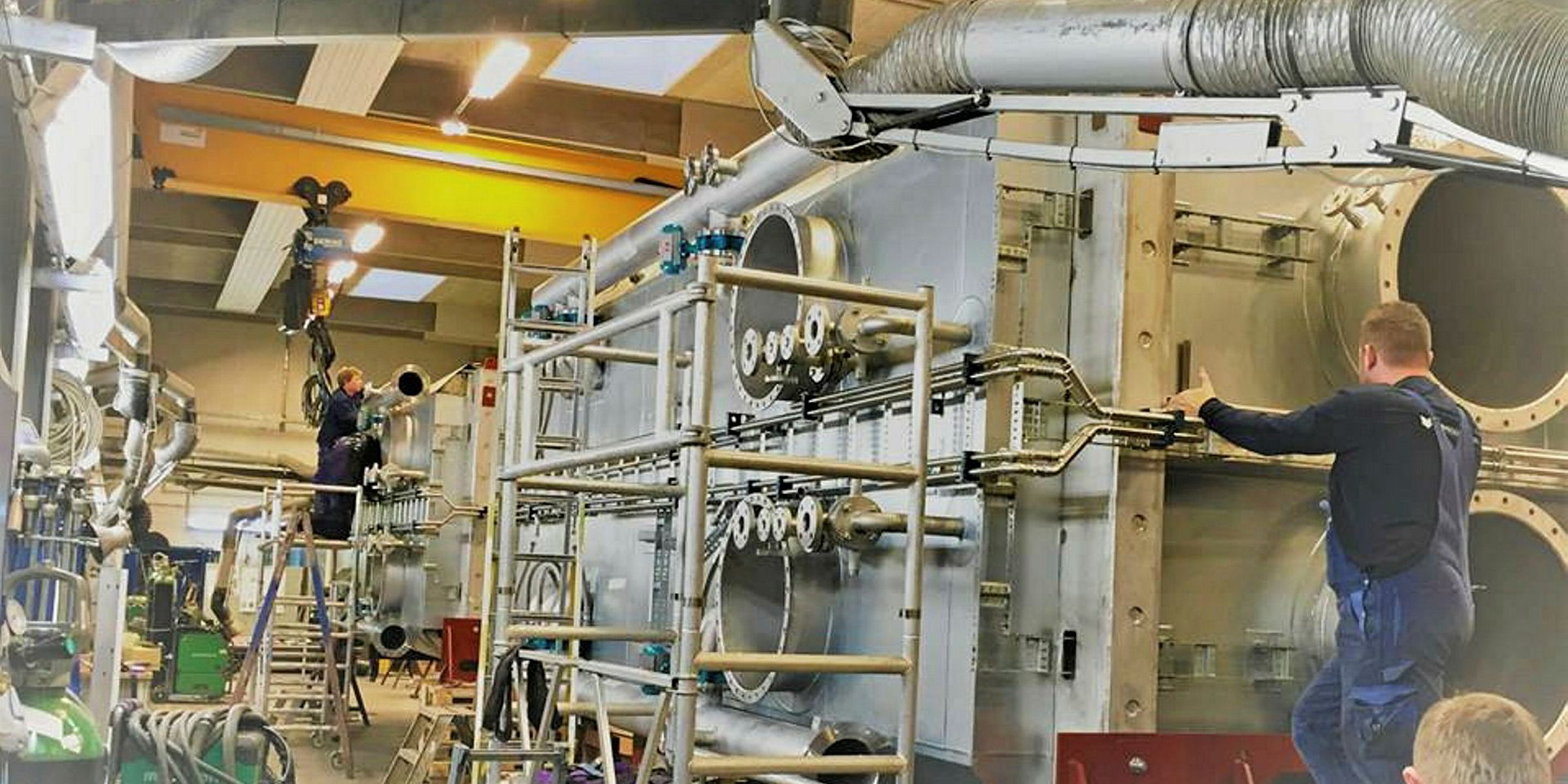As shipping divides into two camps over exhaust gas scrubbers, marine biologists say the issue is more complex than just about the capture of sulphur.
Scientists believe the impact of the use of scrubbers to meet IMO 2020 guidelines remains unclear, but they say there are a number of issues that are often overlooked.
"Whether these effects are positive or negative needs to be studied,"says Sonja Endres, post-doctoral researcher at Germany's Max Planck Institute for Chemistry.
It is not the sulphur that is the problem with open-loop scrubber discharges, but rather their acidity and also the contaminants that are present in these discharges — organics such as PAHs and trace metals
Endres, along with a with other marine scientists, co-authored a 13-page report this year, which lays down their collective view in the very first paragraph.
"Little is known about the chemical composition of the scrubber effluent and its ecological consequences for marine life and biogeochemical processes," the study states.
'Experiments necessary'
"If scrubbers become a central tool for atmospheric pollution reduction from shipping, modelling and experimental studies will be necessary to determine the ecological and biogeochemical effects of scrubber wash water discharge on the marine environment."
Their analysis — and that of other scientists — highlights several factors that may harm marine biology, namely deposits of heavy metals from both the fuel and the scrubber itself.
"We conclude that, despite the existing guidelines for levels of monitoring and compliance of scrubber wash water, there is still the risk for acidification, eutrophication, and accumulation of PAHs [polycyclic aromatic hydrocarbons], particulate matter and heavy metals in the marine environment," the report says.
PAHs are molecules found in coal and tar deposits.
Heavy metals from scrubbers and fuel may include vanadium, nickel, lead, zinc and copper, according to the study. The possibility of such elements are higher in "ecologically sensitive areas" such as polluted, shallow harbours due to high ship traffic, the report states.
Despite scientists' concerns, numerous shipowners from the likes of Carnival Corp to Star Bulk Carriers have installed the devices and many more orders are planned.
As of 7 December, scrubbers have been bought for 1,479 ships, accounting for 1.6% of the world's total fleet, according to Clarksons.
But some shipowners such as Fednav and Euronav have spoken out publicly against them, claiming they are harmful to the marine environment.
'It's not the sulphur that is the problem'
Study co-author David Turner, professor emeritus at the University of Gothenburg's department of marine sciences, says the release of sulphur from ship exhausts into the ocean poses no harm to the marine environment because the seas are naturally sulphur rich.
"It is not the sulphur that is the problem with open-loop scrubber discharges, but rather their acidity and also the contaminants that are present in these discharges — organics such as PAHs and trace metals," he tells TradeWinds.

Scrubbers can lower ship-exhaust sulphur content to 0.5% per IMO 2020 requirements but the guidelines do not consider these potentially harmful contaminants, he says.
"It is not correct to state that open-loop scrubber discharges are 'safe' since their environmental consequences have not been assessed," he says.
"Marpol Annex VI of the IMO has given a high priority to atmospheric pollution, and a low priority to water pollution. It is therefore possible to follow the IMO requirements while polluting the water."
The IMO says a subcommittee on pollution prevention plans to reassess the agency's scrubber water discharge guidelines.
"These guidelines are currently under review," IMO spokeswoman Natasha Brown tells TradeWinds.
The plight of plankton
PAH and heavy-metal contaminants have been shown to kill plankton, tiny aquatic organisms that sustain fish and whales, says Marja Koski, associate professor at the Technical University of Denmark's National Institute of Aquatic Resources, who last year studied the ecological effects of scrubber water discharge.
There have been many studies as to [the] effect of heavy metals from scrubber discharge but the problems are not clear," she tells TradeWinds. "This is the real problem.
"Singapore Harbour is one of the most polluted harbours in the world, and it's not a coincidence that it is also a major shipping harbour.
"The problem is you can't say all of it is coming from the scrubber but you can't say some of it is not coming from the scrubber."
A 2011 US Environmental Protection Agency (EPA) study states scrubbers may contribute to high levels of toxic metals in shipping, containing heavy-metal concentrations exceeding its recommendations for protecting ocean life.
"Discharge concentrations exceeding the intake concentration by more than 50% were interpreted as a stronger indication that a metal was being added to the wash water by the scrubbing process," the study says.
However, the EPA says the IMO is "well placed" to address the potential impact of scrubber water discharge on oceans and recommend appropriate environmental safeguards.
The US agency has not conducted a similar study since 2011 but says it regulates incidental vessel discharges, including scrubber effluent, under the Clean Water Act.
"EPA is actively tracking current industry trends in use of exhaust gas control systems and may consider updating the existing regulatory controls in the future as appropriate," its study says.
Will scrubbers be 'the last drop'?
Koski's study on the impact of scrubber discharge on plankton says it could not evaluate the relevance of scrubber discharge water as an ocean pollutant but suggests that it was the wrong question to ask in the first place.
"Perhaps it would be more relevant to ask under which conditions scrubber discharge water will add a substantial contribution to overall pollution," the study says.
"In some cases, scrubber discharge water could be the last drop in the overall pollution load, which could induce an unfavourable shift in the ecosystem."
Hopefully, more scientific studies will be conducted on the possibly negative impacts of scrubbers on the oceans now that IMO 2020 fervour has brought them to the forefront, Koski tells TradeWinds.
"These studies should be there before the scrubbers are there to figure that out," she says.
"It doesn't make sense to install hundreds of scrubbers and then find out it was a bad idea."





